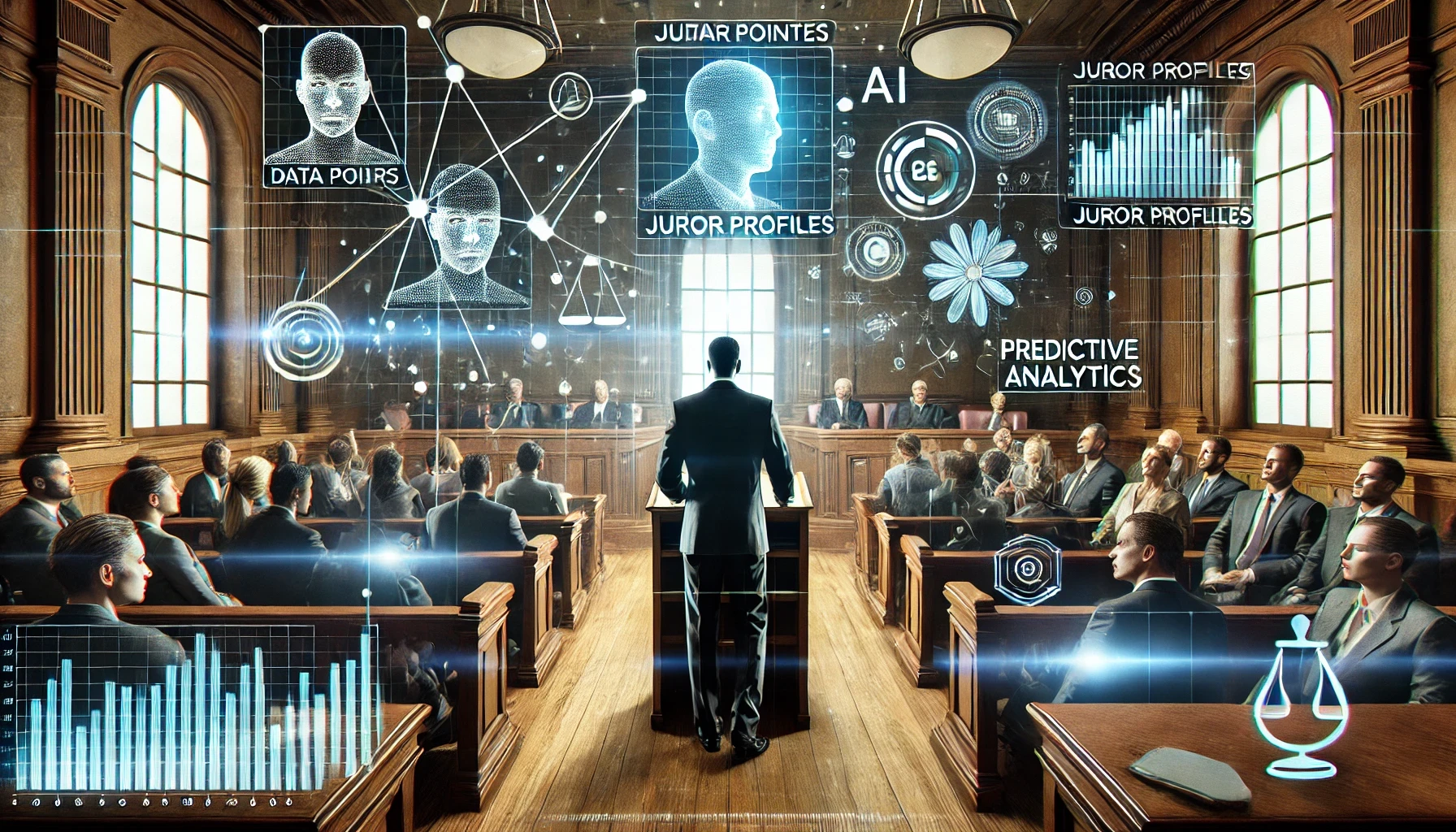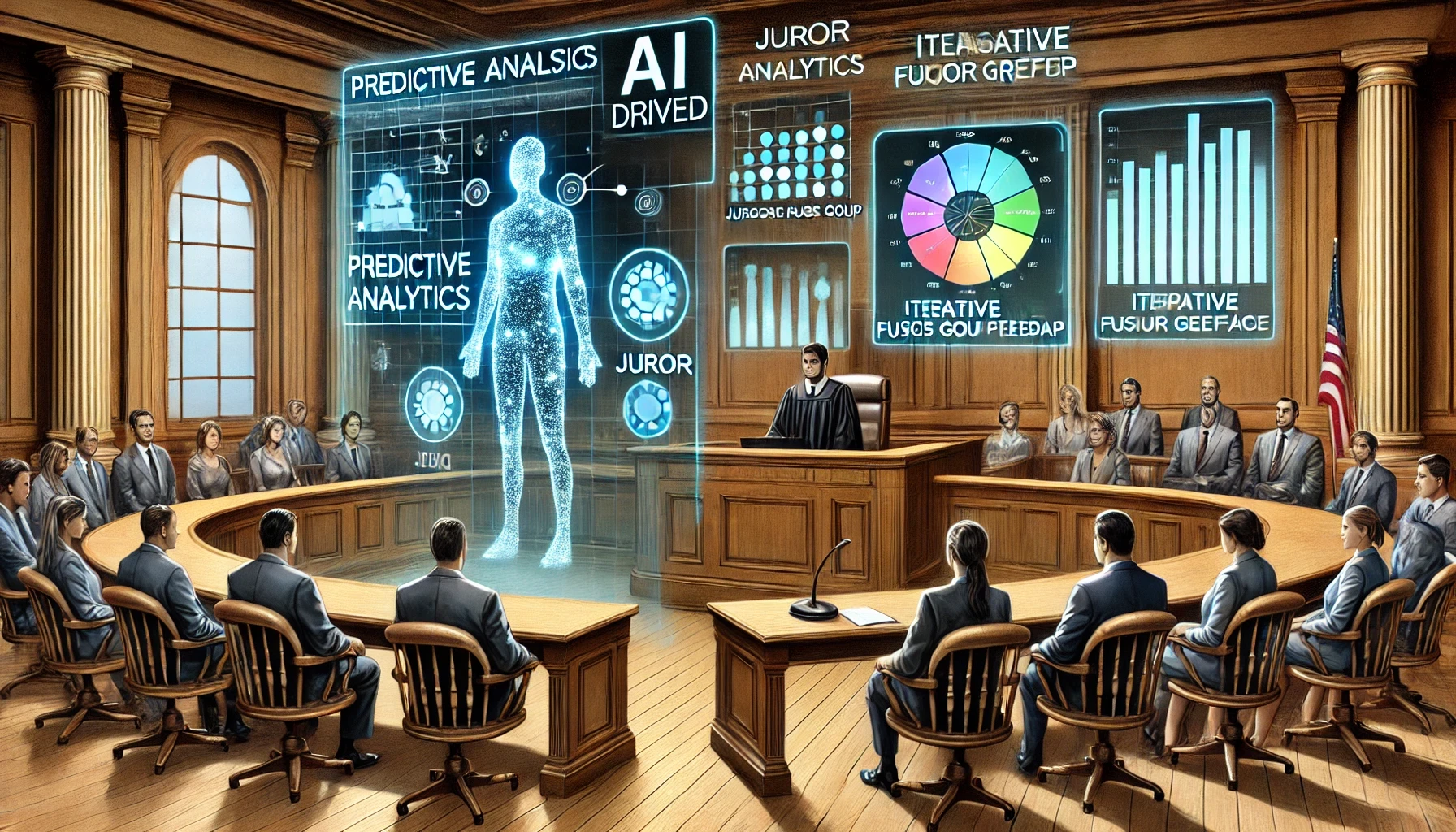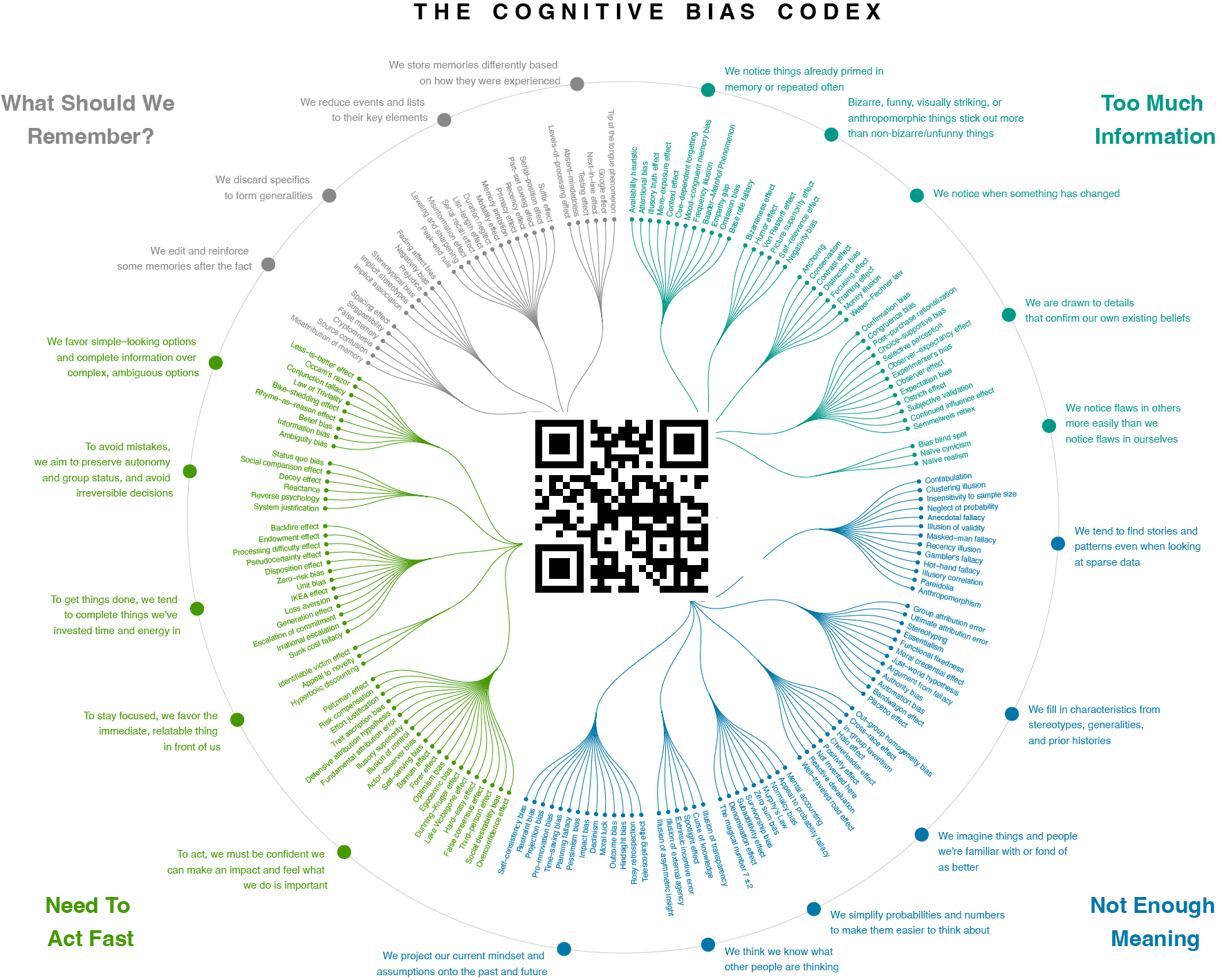Striking Gold in Jury Research: How Early Insights Can Transform Your Trial Strategy
Nov 4, 2024

In trial preparation, uncovering unexpected insights can be the key to crafting a winning case. Imagine a team of attorneys gathered in a conference room, analyzing every detail of a mock juror's feedback, searching for that one missing piece that could make all the difference. One of the biggest benefits of early jury research is the opportunity to ask mock jurors who are convinced by one side, such as the plaintiff: "What would you need to see or hear to change your mind and consider the opposing side?" These kinds of questions have the power to reveal unexpected gaps or weaknesses in a case and guide trial attorneys toward the evidence or testimony needed to sway those who are leaning against them.
The Power of the Unexpected
Trial teams often spend months—or even years—honing case narratives, analyzing evidence, and developing themes that they believe will resonate with jurors. Jury research provides an opportunity to confirm these narratives, but it also offers something more valuable: the unexpected. When laypeople hear the case for the first time, they can identify issues, concerns, or questions that the legal team may not have considered important—and these insights can be like striking gold in a mountain of facts.
Generative AI excels in this aspect by providing insights that go beyond what traditional focus groups can offer. For example, a trial consultant shared how Generative AI revealed a critical gap in their case strategy—a piece of evidence that, once added, significantly strengthened their argument. With the power of Generative AI, attorneys can run iterative focus groups that simulate real-time feedback, allowing them to adapt their strategy dynamically. SyntheticJuror, the advanced technology behind Generative AI, makes this possible by driving its efficiency and effectiveness. This approach doesn't just confirm case themes; it also identifies areas that need improvement, enabling trial teams to make adjustments before it’s too late. By using Generative AI, powered by SyntheticJuror, attorneys have reported significant improvements in case outcomes, increased awards, and reduced preparation time.
For example, imagine a mock juror who initially favors the plaintiff's case. When asked, "What would it take for you to change your mind?" their response might point to a piece of evidence or a narrative angle that was either dismissed as superfluous or not presented at all. "It was like night and day," one attorney said. "The feedback we got from Generative AI gave us exactly what we needed to turn the case around." Generative AI captures these unexpected insights with precision and helps attorneys explore new avenues that may have been previously overlooked. SyntheticJuror ensures these insights are comprehensive and actionable. Such surprises can illuminate new paths to explore during the trial—areas that may require revisiting documents collected during discovery or reconsidering witness testimony. By addressing these juror concerns early on, the trial team can effectively counter the opposition's strengths and reinforce their own arguments, ultimately improving the chances of a favorable outcome.
The Importance of Timing: Finding the Gold Before the Mine Closes
Timing is everything when it comes to trial preparation. Imagine a scenario where an attorney discovers a crucial piece of evidence just in time—evidence that could make or break the case. If feedback from mock jurors reveals a need for additional evidence, it's crucial to act before the discovery phase closes. Sometimes, all it takes to sway opposition-leaning jurors is a deeper dive into documents already collected during discovery—extracting new details or emphasizing aspects that previously seemed unimportant. However, if fact discovery is closed and new evidence is needed, the opportunity to strengthen the case may be lost.
Generative AI, powered by SyntheticJuror, makes it possible to conduct this crucial jury research early in the litigation process. One trial team shared how Generative AI helped them cut their jury research time in half, saving not only costs but also providing insights that would have otherwise been overlooked. Historically, early jury research was often considered too costly and time-consuming to be practical. However, Generative AI has revolutionized this by dramatically reducing both the cost and time needed to conduct jury research. By leveraging its advanced technology, attorneys can now efficiently gather insights that would have been logistically challenging or impossible with traditional methods. With SyntheticJuror behind Generative AI, trial teams can "find the gold before the mine has closed," ensuring they are fully prepared to counter any unexpected resistance before it becomes a problem in the courtroom. This proactive approach not only improves case outcomes but also significantly reduces the time and costs associated with last-minute adjustments.

How Generative AI Transforms Early Jury Research
Generative AI allows trial teams to run focus groups and mock trials quickly, efficiently, and cost-effectively. At the core of this capability is SyntheticJuror, the underlying platform that empowers Generative AI to simulate juror reactions, identify the strengths and potential weak points of the case, and gather actionable insights. When mock jurors are asked open-ended questions like, "What would it take for you to change your mind?", Generative AI captures these insights and helps trial attorneys understand what evidence or testimony might be missing or under-emphasized.
Moreover, Generative AI's predictive analytics, powered by SyntheticJuror, allow attorneys to go beyond surface-level insights. Imagine an attorney running a focus group and discovering that a seemingly minor piece of evidence was the key to changing jurors' minds. By analyzing juror sentiment, demographic-specific reactions, and even psychographic data, Generative AI provides a nuanced understanding of how different types of jurors are likely to respond. This advanced level of analysis helps attorneys adjust their strategy to target specific juror concerns more effectively, leading to increased awards and stronger case outcomes.
These insights are especially valuable early in the litigation process, as they provide trial teams with the opportunity to adjust their discovery strategy, gather additional evidence, or rethink their narrative. Instead of discovering weaknesses too late—when there's no time left to collect new evidence or adjust the case theme—Generative AI empowers trial teams to be proactive, turning potential surprises into opportunities. SyntheticJuror enables trial teams to refine a case narrative based on real-time feedback, giving attorneys an edge that directly translates to improved case results.
Beating the Clock: Early Research as a Strategic Advantage
Early jury research is no longer a luxury—it's a strategic necessity. By leveraging Generative AI, powered by SyntheticJuror, trial teams can gain valuable insights at a stage when they can still take action. Whether it's identifying a missing piece of evidence, reworking a narrative that isn't resonating, or understanding why a juror might lean towards the opposition, early research allows teams to make informed decisions that strengthen their case. Generative AI's ability to iterate rapidly through simulations saves significant time, enabling trial teams to focus on refining their arguments and evidence.
Imagine walking into the courtroom knowing that you've already addressed every major concern raised by your mock jurors. One attorney described the feeling as "incredibly empowering"—knowing that they had adapted their narrative, emphasized the right evidence, and ensured their arguments resonated with the jury. That's the power of early jury research with Generative AI, driven by SyntheticJuror—turning the unexpected into a strategic advantage and giving you the confidence that your case is as strong as it can be. The reduced preparation time and increased confidence in the narrative have directly contributed to improved outcomes and higher awards for cases prepared with this technology.
Conclusion: Preparing for the Unexpected
Jury research is about more than confirming what you already know—it's about discovering the unknown and preparing for it. "Generative AI helped us uncover concerns we didn't even know existed," said one attorney, "and that made all the difference in how we presented our case." Open-ended questions like, "What would it take for you to change your mind?" can uncover new and important avenues to explore during case presentation. With Generative AI, powered by SyntheticJuror, attorneys can identify and address these areas early on, ensuring they are not caught off guard when it matters most. By embracing early jury research through an AI-driven approach, trial teams can turn surprises into opportunities, improve case outcomes, reduce preparation time, and give themselves the best possible chance of success.

